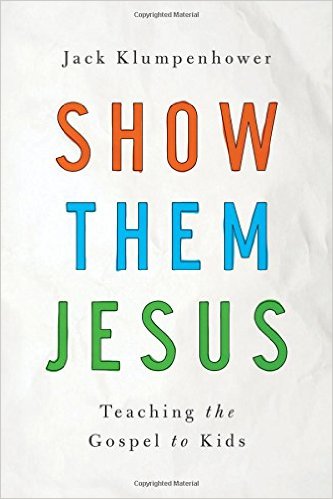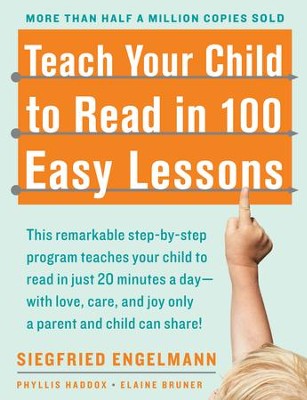As I mentioned in my last post, my desire is to share resources that have been helpful to me in my homeschooling journey. Many of the descriptions are taken directly from Amazon. I didn’t use every resource with every child, but these were especially helpful as I started homeschooling.
Kindergarten
For Mom:

Homeschooling is a wonderful, worthwhile pursuit, but many homeschool parents struggle with feelings of burnout and frustration. If you have ever felt this way, you’re not alone! Most of us need to be reminded of the “why” of homeschooling from time to time—but “The Unhurried Homeschooler” takes parents a step further and lifts the unnecessary burdens that many parents place on themselves. Drawing on twenty years of homeschooling her eight children, Durenda Wilson gently reminds parents about the things that really matter, as she offers a clear portrait of what a life-giving home life can be during the homeschooling years. Reading “The Unhurried Homeschooler” is like having coffee with a trusted friend. You’ll be encouraged as you learn to do what God has put before you. This book will lighten your load while helping you learn how to raise life long learners and ENJOY the homeschool years with your kids.
Show Them Jesus: Teaching the Gospel to Kids

“Millions of church kids are growing up and deciding to leave the church. They listened attentively in Sunday school, made friends, and seemed committed. But one day, they quit. What happened? The Bible says we love God because he first loved us. So if we are not primarily teaching our kids about God’s love for us in Christ, we may miss our opportunity to capture their hearts. But what does it look like to teach a gospel-centered lesson?”
This book invites parents and Sunday School teachers to do nothing less than teach and treasure the good news of Jesus in every lesson. The methods explained in this book really did make me feel equipped to use every Bible opportunity as a chance to point my kids to Jesus.
Gentle and Lowly

Christians know what Jesus Christ has done—but who is he? What is his deepest heart for his people, weary and faltering on their journey toward heaven? Jesus said he is “gentle and lowly in heart.” This book reflects on these words, opening up a neglected yet central truth about who he is for sinners and sufferers today.
For school:
Bible:

“Can a Bedtime Story Actually Change Your Life? It is easy to forget Jesus in the midst of frantic schedules, family squabbles, and conflicting priorities. But the truth is that he is the hero of every story, including these ordinary ones. This is why Marty Machowski puts God’s plan of salvation in Christ on continuous display in The Gospel Story Bible. (And includes child-friendly questions for discussion.) “Ideal as a storybook for your preschooler, a devotional for your grade school student, a refresher for the adult believer, or an introduction for the new one, The Gospel Story Bible is also a companion to Long Story Short: Ten-Minute Devotions to Draw Your Family to God.”
Language Arts:
Teach Your Child to Read in 100 Easy Lessons

Teach Your Child to Read in 100 Easy Lessons is a complete, sensible, easy-to-follow, step-by-step program that shows simply and clearly how to teach children to read. In 100 lessons, color-coded for clarity and ease of delivery, you can give your child the basic and more advanced skills needed to be a good reader—at about a second-grade level.
Twenty minutes a day is all your child needs to become an independent reader in 100 lessons. It’s an enjoyable way to help your child gain the vital skills of reading. Everything you need is here for you and your child to learn together. Teach Your Child to Read in 100 Easy Lessons will bring you and your child a sense of accomplishment and confidence while giving your child the reading skills needed now for a better chance at tomorrow.
I have used this resource with all three of my children and was happy to discover free flashcards to go along with the book. You don’t need a big and expensive reading program to teach your child to read. My three children have very different personalities, so there have been a variety of challenges (including plenty of review and backtracking/splitting lessons, etc) in this endeavor. I have needed to ask God for more patience and creativity in how to keep my other children busy and train them not to interrupt the 20-30 minute lesson with the child learning to read, but it has been so worth it. So much of their own self-led educational pursuits have happened as soon as they’ve learned how to read.

Learning Without Tears (Handwriting Without Tears) (You don’t need to purchase the Teacher’s Guide.)

- Large, step-by-step models for finger tracing
- Words and sentences model good spacing
- Double lines make it easy to place letters and control letter size
- Learn & Check helps students check their letter, word, and sentence skills
You can purchase a little chalkboard to demonstrate each letter and have your child practice tracing the letter with the damp corner of a paper towel and then trace it themselves with chalk.

My Father’s World booklists and read-alouds (In back of teacher’s manual)

This curriculum is full of great themes and ideas but was too overwhelming to implement everything once I had more than one child in school.
Once my second child started kindergarten, I stuck to getting library books from the booklists in the back of the teacher’s manual and using the resources I’ve listed above (and not purchasing the Student Sheets).
But if you don’t want to purchase a whole teacher’s manual for your homeschooling, I would suggest using the booklists from “Honey For a Child’s Heart.” Here’s a link to the pdf of it.
Math:
We stuck to playing board games together (like this one) and having the kids sometimes help in the kitchen (counting and measuring).

History and Science:
The My Father’s World read-aloud booklists included some history and science-related books we enjoyed together.
Again, if you don’t want to purchase a whole curriculum, you can pick out interesting books from the library yourself or consult a resource like Ambleside Online. Here’s what they have to say about science: https://www.amblesideonline.org/science#early
And here is the master booklist that would include history and science books you can find at the library.
Music:

Art:
I slowly added items to our activity cupboard so the kids could choose something when they had some free time. Things like puzzles, gems and beans to count with, magnetic letters on a whiteboard, Water Wow books, preschool lacing/sewing cards, magnetic animals and scenes on cookie sheets, play-doh, modeling clay, and beads. I also tried to keep copy paper, construction paper, crayons, colored pencils, watercolor pencils, markers, scissors, and tape in a handy place.

This exciting, full-color workbook will engage kids in hours of productive fun!
While being engaged in fun activities, your children will be practicing important age-appropriate skills such as visual discrimination, sequencing, small muscle coordination, following directions, and critical and creative thinking.
The activities in The Never-Bored Kid Book, Ages 4 and 5 are organized around 16 age-appropriate themes
My middle child has loved these the most. They have activity books for ages 4-9.

- TEACHES KIDS STEP BY STEP HOW TO SOLVE and BUILD PUZZLES from very simple to amazingly complex.
- DEVELOPS ESSENTIAL LOGICAL THINKING SKILLS, dexterity, eye-hand coordination, patience, and creative problem solving.
Screentime:
Khan Academy Kids

This is an excellent free app that includes reading and math activities.

What is the Bible? How is it put together? Learn alongside Buck Denver, Sunday School Lady, Brother Louie and the crew that the Bible tells the story of God and what he’s done for us.











